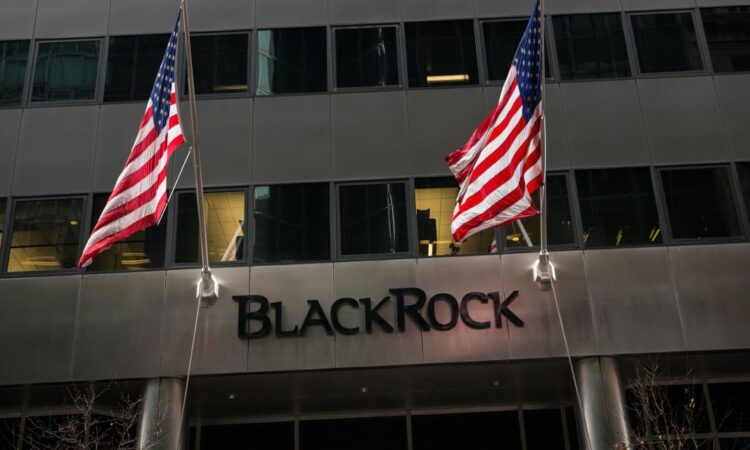
Strategists at
forecast a colossal shift that will transform the structure of the global economy, but also detailed moves investors should make over the nearer term.
In a briefing on their midyear outlook, BlackRock Investment Institute strategists said they are sticking with their preference for U.S. and Japanese stocks for the second half of the year, but have turned more bullish on U.K. stocks following Labour’s landslide win. They say more companies could be winners in the U.S. market, as long as they are tied to artificial intelligence.
For the longer term, the strategists said, investors should expect a historical wave of trillions in capital spending to power artificial intelligence, shift to a low-carbon world, and reshuffle global supply chains as countries prioritize economic security. These megatrends are fueling a building boom on par with the Industrial Revolution, they say, arguing that investors should pay more attention to how these forces reshape the structure of the economy, rather than the growth and inflation that has been of focus of late.
Strategists from the passive-investing powerhouse said questions about the speed, scale and impact of this transformation could require a more active approach to investing as the outcomes could necessitate more upheaval in portfolios, rather than the typical tinkering investors have often done around the edges to adjust for divergence from base-case scenarios.
“We are facing ahead of us a range of outcomes much larger than usual and larger than we have contemplated in our investment careers,” said BlackRock Investment Institute head Jean Bovin.
Advertisement – Scroll to Continue
For now, though, the team is still bullish on U.S. stocks, with AI as a continued driver. The Federal Reserve could give the market a positive surprise on the rate cut front, or at least a less negative outcome than the market anticipates, said Wei Li, global chief investment strategist for the institute.
While corporate profits in the second half may deliver less of a positive boost to stocks as expectations for earnings have risen, Li said strong momentum in companies results underpins the team’s “risk-on” stance.
Technology is still leading the market in terms of projections for earnings growth, but Li said eight out of 11 sectors posted expanding margins last quarter. Nevertheless, AI is still the name of the game.
Advertisement – Scroll to Continue
While the BlackRock team sees a broadening out of the market, it expects that the winners will still be connected to AI. For example, the strategists see upside in sectors that should become more efficient as they adopt AI: areas such as industrials, energy, and healthcare. They are also focusing on those needed to make AI a reality, including utilities and energy stocks.
Overseas, Li said, the team is still overweight Japanese stocks and expects the Japanese market to generate more than the consensus expectations for 7.5% earnings growth as companies continue to make progress in improving governance and shareholder returns. While sharp declines in the Japanese yen have created volatility for foreign investors, Li said the weaker currency was helping earnings of some Japanese companies.
As Japan heads into election season over the next year, the
may intervene to help stabilize the currency, possibly indirectly by encouraging repatriation of funds or wooing inflows of foreign capital.
Advertisement – Scroll to Continue
Investors have had to pay more attention to elections this year as they have sparked shifts in market sentiment in several countries. Given that Labour leader Keir Starmer has become U.K. prime minister in a landslide election, Li sees a tactical, or near-term, opportunity in U.K. stocks. The team now recommends that investors be overweight in U.K. equities, with Li citing cheap valuations, the perceived potential stability after the election, and signs of a turnaround in earnings.
One marker of just how cheap U.K. stocks have become is that their so-called equity-risk premium is about three percentage points higher than for U.S. stocks, indicating investors there expect better returns relative to what is available from risk-free government debt. That compares with one percentage point before Brexit in 2015, Li said.
Earnings expectations are also moving in the right direction, shifting from forecasts for a 10% decline in profits to calls for 5% growth in the next three months. The UK’s fiscal challenges, however, make this a near-term call, rather than something investors can count on for the longer term, Li said.
For investors who are thinking longer term, the strategists also made a strong case for more active management, saying they expect the real economy to take the driver’s seat from the financial economy in fueling markets. That makes it harder for central banks to save the day and puts more of a focus on capital investment, which requires a more selective approach and more scenario planning around potential chokepoints created by policy, regulation or supply bottlenecks, Li said.
“We recognize the bigger role active plays in this environment and that private markets play, potentially as sectors are being revamped,” Li said. Li also made a plug for private investing, which can allow investors to take advantage of opportunities before they are well represented in indexes tracking the market.






